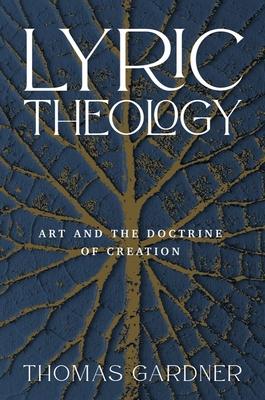Art is an outworking of God's creative process, a tangible participation in the shaping of the world. Through our artistic endeavors, we both express our understanding of creation and imbue that creation with new meaning. Four artists in particular--the poet Czeslaw Milosz, filmmaker Terrence Malick, novelist Marilynne Robinson, and lyric essayist Annie Dillard--actively wrestle with a world that reflects God's glory while remaining at times deeply and troublingly obscure.
In Lyric Theology, Thomas Gardner unfolds the ways these four important contemporary figures, drawing on modes of thinking rooted in lyric poetry, explore what the world looks like when seen as created and received as a gift. Lyric thinking, he argues, dramatizes a mind and spirit reaching toward a beauty and complexity that can never be fully grasped but yet can be lifted up in praise and wonder, bafflement and song. The specific lyric responses on display here-- resisting meaninglessness, wrestling with contrary impulses to both celebrate and turn away, embracing as revelatory the failure to see fully, and redeeming the world by lifting its particulars into song--can be seen as acts of theological thinking, deepening and extending the doctrine of creation by living out its implications in the world.
If the world were created out of nothing save the desire to extend the love expressed within the Trinity to creatures who might reflect it back in wonder and praise, lyric ways of making sense of the world--breaking free of straightforward conceptualization and argument and exploring inward, nuanced, and continually made and remade responses to the world's particulars--bring this idea forward as a living thing. Drawing on his own work as a literary scholar and a lyric essayist, Gardner here gives us the tools to both understand and join in performing creative theological explorations of great subtlety, beauty, and originality.
